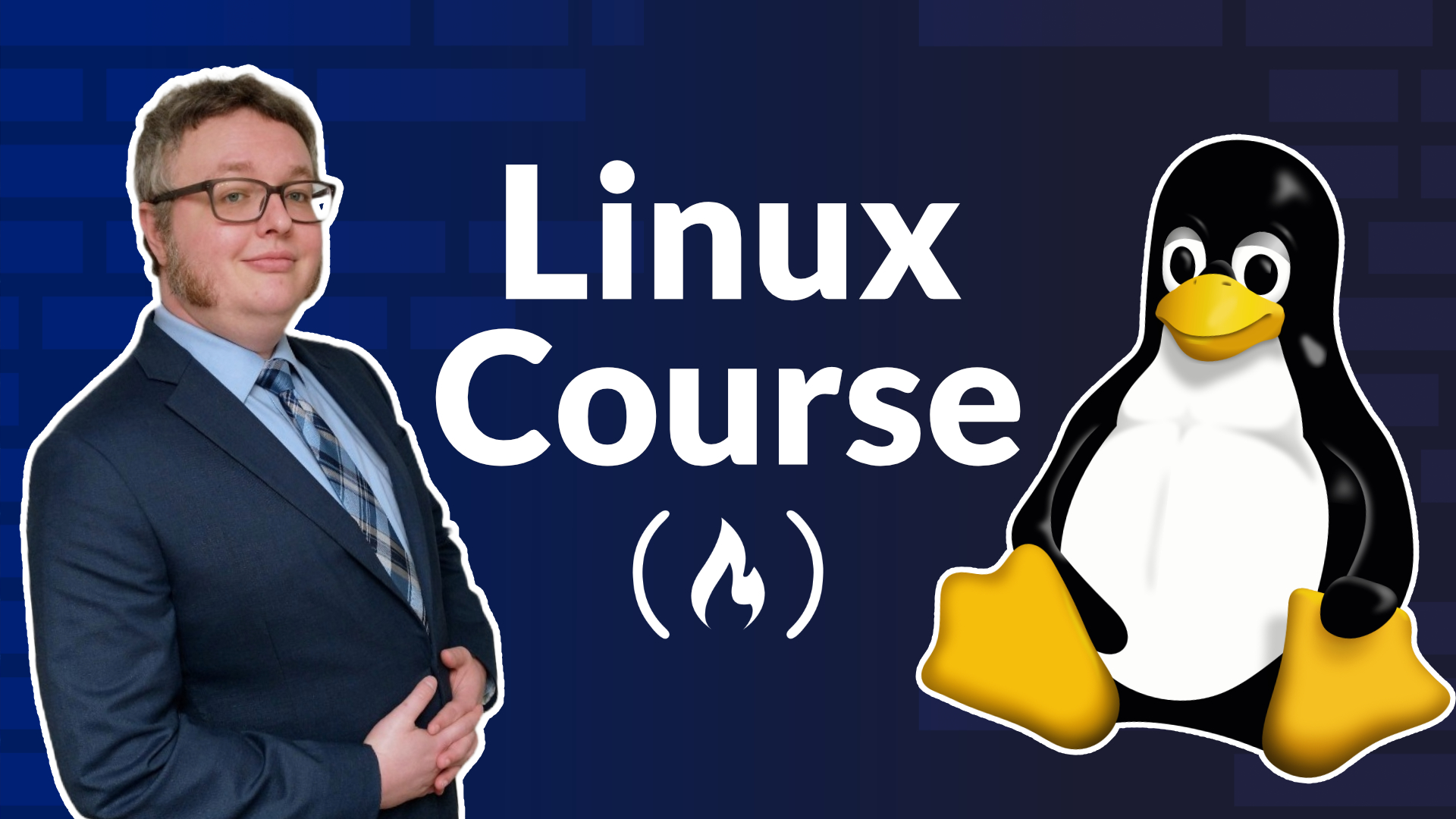
Free Linux Crash Course with Labs
Free Linux Crash Course with Labs 관련

Learning Linux is important because it powers the majority of the world's servers, from web hosting to cloud infrastructure. Its open-source nature ensures that it remains versatile, secure, and continually updated by a global community of developers. Mastering Linux equips you with the skills to manage and troubleshoot a wide range of systems, making you a valuable asset in the tech industry.
We just posted a new video course on the freeCodeCamp.org YouTube channel designed to transform you into a proficient Linux system administrator. This comprehensive crash course, developed by Aaron Lockhart, covers essential skills and tools needed to manage Linux systems efficiently.
Course Contents
Here are the key sections and what you'll learn from each:
Introduction
The course begins with an introduction that sets the stage for your learning journey. You'll get an overview of Linux, its importance in the IT industry, and what you can expect to gain from the course.
Log into Local & Remote Consoles
Learn how to access Linux systems both locally and remotely. This section covers the basics of logging into consoles, which is crucial for managing servers and systems from various locations.
Read and Use System Documentation
Understand how to read and utilize system documentation effectively. This skill is vital for troubleshooting and optimizing system performance.
Free Labs - Log in to the Labs
Practical labs where you can apply what you've learned about logging into systems. Hands-on practice is crucial for reinforcing your skills.
Working with Files and Directories
Master the art of navigating and managing files and directories in Linux. You'll learn commands to create, move, copy, and delete files and directories, along with understanding the directory structure.
Create and Manage Hard Links
Discover how to create and manage hard links. Hard links are a powerful feature of Linux filesystems that can help in various administrative tasks.
Create and Manage Soft Links
Learn about soft links (symbolic links) and their differences from hard links. This section teaches you how to create and manage these links effectively.
Free Labs - Files, Directories, Hard and Soft Links
Apply your knowledge of files, directories, and links in these practical labs. Real-world scenarios help solidify your understanding.
List, Set and Change File Permissions
Gain a thorough understanding of file permissions. You'll learn how to list, set, and change permissions to control access to files and directories.
Search Files with Grep
Learn to use the powerful grep command to search for text within files. This tool is indispensable for quickly finding information in large datasets.
Analyze Text with Regular Expressions
Dive into the world of regular expressions. These are patterns that help match text in files, which is crucial for text processing tasks.
Extended Regular Expressions
Expand your knowledge with extended regular expressions, providing more advanced techniques for text analysis and manipulation.
Free Labs - File Content, Regular Expressions
Reinforce your skills with practical labs focusing on file content and regular expressions. These exercises help you apply what you've learned in real scenarios.
Manage Local User Accounts
Understand how to manage local user accounts, including creating, modifying, and deleting users. This section is essential for maintaining system security and organization.
Free Labs - Manage User Accounts and Groups
Hands-on labs where you manage user accounts and groups, ensuring you can apply these critical administrative tasks in real-life situations.
Configure User Resource Limits
Learn to configure user resource limits to control how much system resources users can consume. This helps in maintaining system stability and performance.
Manage User Privileges
Discover how to manage user privileges, ensuring that users have appropriate access levels to perform their tasks without compromising system security.
Free Labs - Configure User Resource Limits and User Privileges
Apply your knowledge of resource limits and user privileges in these practical labs. Real-world exercises help cement your understanding.
Manage Access to the Root Account
Understand the importance of the root account and how to manage access to it. Proper management of root access is crucial for system security.
Conclusion
The course wraps up with a conclusion that summarizes what you've learned and offers guidance on the next steps in your Linux administration journey.
By the end of this course, you'll have the foundational skills needed to manage Linux systems effectively. Watch the full course on the freeCodeCamp.org YouTube channel (2-hour watch).